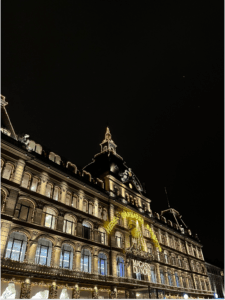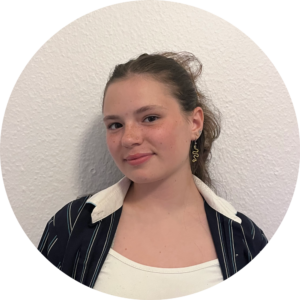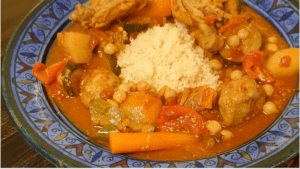July 4, 2024 opinion
My experiences – good and bad – as a third culture kid

The National Multicultural Festival - the first festival celebrating cultural diversity since 1981.
In today’s increasingly globalised world, more children are growing up with influences from multiple ethnic backgrounds and cultures.
These children, often referred to as ‘third culture kids’ navigate the complexities of two, three or sometimes even four different cultures in their everyday life. I’m one of them.
My father is Syrian, and my mother is French, but I have lived in Denmark for most of my life. As a result, I am familiar with three distinct cultures, languages and traditions. This multicultural identity shapes my everyday life in numerous ways, offering both benefits and obstacles.
Here, I share seven facts about my life and identity as a third culture kid.

French is my mother tongue, I am fluent in English and Danish and can speak Arabic slang. I use all these languages everyday, and mix-ups happen very frequently when I speak or write. Though speaking four languages daily is something not many people experience, it can have its downsides.
I can, for example, be having a conversation with someone in one language and only remember the word I want to use in another. I spend several minutes trying to remember the word. Sometimes I succeed, but sometimes I discreetly type it into Google Translate, and when I see the word I go like “ Aahhhh, yes, that was the word” and feel stupid for forgetting it in the first place.
The perfect solution for this problem is to find a person who speaks all the same languages as you – but then you might as well be best friends with Duolingo.
Personalities
Every language or culture has its very own sense of humour, as well as specific words and jokes. Depending on which language I’m speaking, I have a completely different sense of humour and personality.
This can be extremely confusing for those around me. They might think, “Who is that?” when hearing me speak another language. I think some of my friends find me hilarious in one language and horribly boring in another.
Future career
As well as being a multicultural person, I study at an international school. Having an International Baccalaureate (IB) diploma is well known for creating many opportunities to study in renowned universities around the world.
In the business world, the strongest CVs are usually the ones with diplomas from well-known universities around the world and an international background. In addition to that, employers often look for multilingual workers.
Being a multicultural, international and multilingual student is an amazing door-opener for my future career, and I believe it will offer me numerous possibilities.
Taking the best
In all cultures, there are very nice values and traditions as well as hurtful or outdated ones. I have made my personal little selection of all the habits I like the most from Danish, French and Arabic culture and made my own ‘soup’ with it.
Arab culture is a lot about spending quality time with your family, especially your elders. This is a principle I have a lot of respect for and have tried to include in my everyday life. It has brightened up my mood many times to call my grandmother, even for just five minutes and have a conversation with her about how our day has been.
Danish culture is well known for its open-mindedness and for giving a lot of importance towards education. This has taught me to respect all perspectives and to always be polite towards anyone I meet.
French culture is all about politeness and gallantry. It is a very useful tool to have in your belt as it teaches you to be civil in all situations.
Food
Eating is a very big thing in both French and Arabic culture. Mealtimes are always a sacred moment shared with loved ones, and cooking is always done with love and care. Somehow, sharing food puts a smile on everyone’s face and allows everyone to enjoy the moment and relax.
Truthfully, my stomach is living its best life right now because French and Arabic food is something out of this world. My favourite Middle Eastern dish is waraq enab, made with stuffed grape leaves. My favourite French dish is a dessert called crèpes – a little like thin pancakes.
My family also likes to cook Pakistani, Greek and Moroccan dishes, so our dinner table always looks a little bit unexpected, but that’s what makes it charming.
Adapting
Moving to a completely new country at the age of six as a mixed-raced child, I had to adapt very quickly in order to make friends and settle down.
From this experience, I have learned to adjust as fast as possible to new environments such as social groups, places where I go on vacation or common habits. I see it as a plus in my life, as it makes me generally more open to change.
Where are you from?
I could write a whole article about this question. In some languages, including English, “Where are you from?” can mean which part of a city or a region you live in, which country you live in, or where you are from ethnically.
I, and many others like me, find this a very confusing question. It is, after all, very subjective. The question refers to which location in the world one feels most connected to or knows the most about, which is a choice everyone has to make individually, therefore the answer will be individual – and neither right nor wrong.
Overall, in my experience, being around many different cultures brings benefits to both the social and academic aspects of my life. It makes it easier to form connections and to have a nice conversation with people by finding common points faster. I tend to find change less stressful than others, and even sometimes embrace it.
But the downsides of multiculturalism are the hardship that comes with finding my place in society; finding a community that accepts all the different parts of me and the difficulties of finding myself and knowing who I am, because I have no firm roots to go back to or stick to in periods of doubt.





